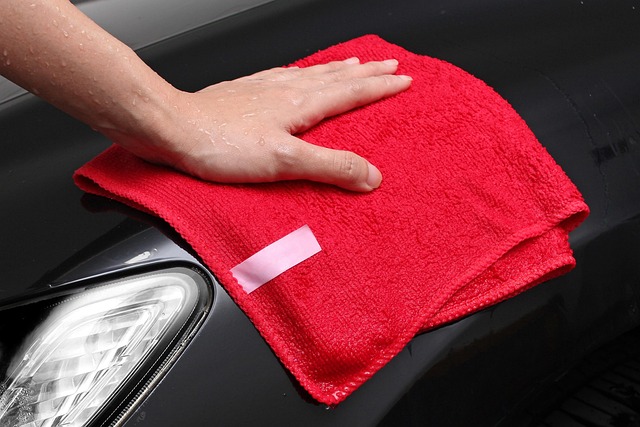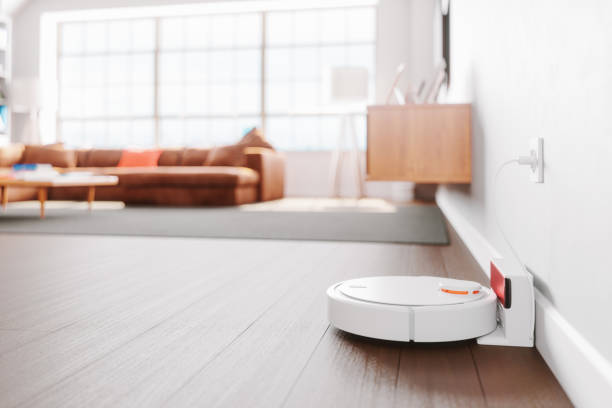How Car Cleaner Spray Works to Keep Cars Looking Fresh
Car cleaner spray is a product used to remove dust, dirt, and smudges from a car’s surface. This article explains how the spray spreads across the car, how it helps lift particles, and the ways people use it to keep vehicles looking clean and shiny. Learn the steps for applying it evenly and see how simple tools and sprays can make car care easier and more organized.

Car cleaner sprays have become essential tools in modern vehicle maintenance, offering convenience and effectiveness that traditional cleaning methods often lack. These specialized products work through carefully formulated combinations of surfactants, solvents, and protective agents that tackle dirt while preserving your vehicle’s finish. Understanding how these products function can help car owners maintain their vehicles’ appearance and protect their investment for years to come.
How Car Detailing Products Remove Contaminants
Car cleaner sprays utilize advanced chemical formulations to break down and lift various contaminants from vehicle surfaces. Most quality products contain surfactants—molecules with both water-attracting and water-repelling ends—that surround dirt particles and separate them from the surface. This process, called emulsification, allows contaminants to be easily wiped away without scratching the paint. Additionally, many formulations include specialized solvents that dissolve stubborn substances like tree sap, bird droppings, and road tar that water alone cannot remove. The effectiveness of these products stems from their ability to tackle multiple types of soil while maintaining a delicate balance that protects the vehicle’s clear coat and paint.
Essential Vehicle Cleaning Tips for Maximum Results
To achieve optimal results with car cleaner sprays, proper application techniques are crucial. Always start with a cool, shaded surface to prevent premature drying that can lead to streaking or spotting. Working in sections—typically 2x2 foot areas—allows the product to remain active without drying too quickly. Many professional detailers recommend using microfiber towels rather than traditional cloths, as their unique structure lifts and traps particles instead of dragging them across the paint surface. For heavily soiled vehicles, a pre-rinse to remove loose debris can significantly improve results. Remember that most spray cleaners work best when the vehicle is clean but not necessarily dripping wet—a slightly damp surface often provides the ideal foundation for these products to work effectively.
Automotive Care Guide: Protecting Different Surfaces
Modern vehicles feature multiple surface types, each requiring specific care considerations. Quality car cleaner sprays are typically formulated to address this variety. For painted surfaces, look for pH-balanced formulations that won’t strip wax or protective sealants. Glass surfaces benefit from alcohol-based or ammonia-free cleaners that evaporate quickly without leaving streaks. For interior surfaces, silicone-based sprays provide UV protection for vinyl and plastic components while preventing drying and cracking. Chrome and metal surfaces often respond best to slightly acidic cleaners that remove oxidation and restore shine. Many manufacturers now offer all-in-one products with balanced formulations suitable for multiple surfaces, though specialized cleaners still provide superior results for specific applications. Always verify compatibility before applying any product to sensitive materials like alcantara, uncoated leather, or matte paint finishes.
Car Surface Maintenance Between Full Detailing Sessions
Regular maintenance using car cleaner sprays extends the life of more intensive detailing work. Quick detailer sprays serve as excellent interim solutions between washes, removing light dust and fingerprints while reinforcing existing protective layers. These products typically contain small amounts of polymers or carnauba wax that enhance the vehicle’s protective coating with each application. For optimal protection, establish a maintenance schedule that includes weekly quick detailing, monthly washing with appropriate cleaners, and quarterly waxing or sealant applications. Environmental factors should influence this schedule—vehicles exposed to harsh conditions like coastal salt air, industrial fallout, or frequent bird droppings require more frequent attention. Many detailing professionals recommend keeping a quality spray cleaner and microfiber cloth in the vehicle for immediate attention to contaminants that could otherwise etch into surfaces if left untreated.
Understanding Car Shine Spray Technology
The science behind the brilliant finish that quality car cleaner sprays deliver involves sophisticated polymer technology. Modern formulations incorporate synthetic polymers that bond temporarily with the vehicle’s clear coat, creating an ultra-smooth surface that reflects light more uniformly—the key to that coveted showroom shine. Some advanced products utilize silicone dioxide (SiO2) or ceramic-infused formulations that provide longer-lasting protection and enhanced hydrophobic properties, causing water to bead and roll off rather than sitting on surfaces where it can cause spotting. The latest generation of spray cleaners often incorporates anti-static properties that repel dust and pollen, keeping vehicles cleaner between washes. This technology represents a significant advancement over older formulations that simply masked imperfections with temporary glossing agents.
Comparing Popular Car Cleaner Spray Products
The market offers numerous car cleaning spray options with varying formulations and price points to suit different needs and budgets. Understanding the differences can help consumers make informed choices based on their specific requirements.
| Product | Primary Features | Best For | Price Range |
|---|---|---|---|
| Meguiar’s Quik Detailer | High lubricity, safe for all finishes | Between-wash maintenance | $8-12 |
| Chemical Guys EcoSmart | Waterless wash capability, eco-friendly | Water-restricted areas | $15-20 |
| Adam’s Detail Spray | High gloss, UV protection | Show cars, weekly maintenance | $13-17 |
| Griot’s Garage Speed Shine | Anti-static properties, streak-free | Daily drivers, quick touchups | $12-16 |
| Mothers California Gold | Carnauba wax enhanced, deep shine | Older vehicles, enhancing depth | $9-14 |
Prices, rates, or cost estimates mentioned in this article are based on the latest available information but may change over time. Independent research is advised before making financial decisions.
Car cleaner sprays represent a significant advancement in vehicle care technology, offering convenience without sacrificing quality results. These products work through sophisticated chemical interactions that clean, protect, and enhance automotive surfaces simultaneously. By understanding the science behind these formulations and following proper application techniques, vehicle owners can maintain their car’s appearance between professional detailing sessions while extending the life of paint and other surfaces. As environmental concerns grow, manufacturers continue to develop more eco-friendly options that deliver excellent results while reducing impact—demonstrating that effective automotive care and environmental responsibility can indeed go hand in hand.




